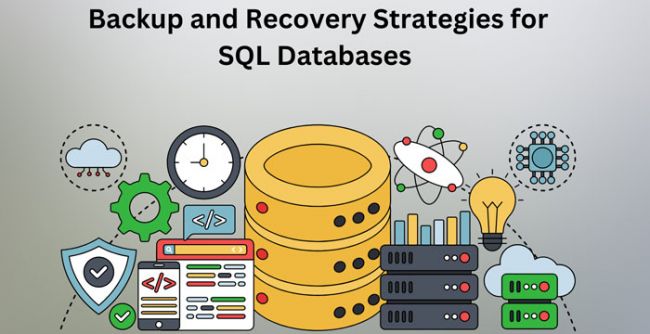In the digital age, e-commerce has flourished, offering unparalleled convenience and opportunities for both consumers and businesses.
However, this boom has also attracted malicious actors, making e-commerce fraud a critical concern.
As online transactions continue to grow, so does the sophistication of frauds, challenging businesses to fortify their digital storefronts against a variety of threats.
From payment fraud and account takeovers to data breaches, the risks are ever-evolving, necessitating advanced defense mechanisms.
The financial implications are significant, with businesses across the globe losing billions annually to fraudulent activities.
This scenario underscores the urgency for effective strategies to safeguard against e-commerce fraud, protect customer trust, and ensure the integrity of online commerce.
E-Commerce Fraud: An Overview

E-commerce fraud is a multifaceted challenge that continues to evolve, driven by the increasing volume of online transactions and the ever-expanding array of payment methods.
This fraud manifests in various forms, including payment fraud, account takeovers, phishing attacks, and more.
Each type poses unique challenges, requiring tailored strategies for prevention and mitigation.
The financial impact of e-commerce fraud is staggering, with businesses dedicating a significant portion of their revenue to combat these threats.
Statistics from 2023 highlight the severity of the issue, with average losses of $207 for every $100 in fraudulent orders, emphasizing the costly nature of these activities.
This situation is exacerbated by the growing number of payment methods, each introducing new vulnerabilities.
The average e-commerce merchant now accepts 4.6 forms of payment, further complicating the fraud prevention landscape.
Finding A Relevant Online Guide
In this complex environment, knowledge is power.
A comprehensive online guide to e-commerce fraud prevention can be invaluable, offering insights into the latest trends, effective strategies, and practical tips for safeguarding digital storefronts.
Such guides delve into the specifics of identifying various types of fraud, implementing robust verification processes, and leveraging technology to detect and prevent fraudulent activities.
While this response doesn't point to a specific guide, merchants are encouraged to seek out reputable and up-to-date resources that cover the broad spectrum of e-commerce fraud and its prevention.
These guides often emphasize the importance of a multi-layered defense strategy, incorporating both technological solutions and human oversight.
Key recommendations include the use of advanced fraud detection tools, such as machine learning algorithms, behavioral analytics, and multi-factor authentication, to enhance the security of online transactions
Implementing Advanced Fraud Detection Tools
The battle against e-commerce fraud is increasingly reliant on sophisticated technology.
Advanced fraud detection tools play a pivotal role in identifying and mitigating fraudulent activities before they can impact a business.
These tools leverage a combination of machine learning, artificial intelligence, and real-time analytics to scrutinize transactions for suspicious patterns indicative of fraud.
By analyzing vast amounts of data, these systems can detect anomalies that may signal fraudulent attempts, such as unusual purchasing behaviors or inconsistent billing information.
Machine learning algorithms are particularly effective, as they continuously learn from new fraud patterns, enhancing their detection capabilities over time.
Identity verification services, two-factor authentication, and credit card verification are among the most commonly used tools, helping to confirm the legitimacy of transactions and customers.
With e-commerce companies manually screening an average of 19% of orders for fraud, the integration of these automated tools can significantly reduce the burden on resources and decrease the risk of human error.
Strengthening Customer Authentication Processes
Strengthening customer authentication processes is another critical step in safeguarding against e-commerce fraud.
Enhanced verification methods, such as two-factor authentication (2FA) and 3-D Secure (3DS), add an extra layer of security, making it more challenging for fraudsters to gain unauthorized access to customer accounts or complete unauthorized transactions.
Two-factor authentication, which requires users to provide two different types of information for verification, is cited by merchants as one of the most effective fraud-fighting tools.
The adoption of behavioral biometrics, which analyzes patterns of user behavior such as typing speed, mouse movements, and navigation patterns, offers a sophisticated approach to verifying user identity.
This method can detect inconsistencies in behavior that may indicate account takeover attempts.
Moreover, the use of CAPTCHAs and other bot detection tools helps to prevent automated fraud attempts, further securing online platforms against unauthorized access.
Enhancing E-Commerce Security With Temporary Phone Numbers
In the digital marketplace, ensuring the security and privacy of transactions is paramount.
One innovative approach to bolstering online security involves the use of temporary phone numbers for verification purposes.
These disposable numbers offer a strategic defense against fraud, enhancing privacy and protecting users from unwanted communications and potential identity theft.
Advantages Of Temporary Phone Numbers
Temporary phone numbers offer a versatile solution to enhance online privacy and security, enabling users and businesses to navigate the digital world with confidence:
- Privacy And Security: Temporary phone numbers shield your actual contact details from the public domain, minimizing exposure to spam and safeguarding against potential data breaches. This level of anonymity is crucial for e-commerce platforms looking to protect their users' information.
- Versatility For Users And Businesses: Whether for individual privacy needs, online dating, classified ads, or business and freelance activities, temporary numbers provide a flexible solution. They are particularly useful for e-commerce platforms that require phone verification to authenticate user accounts or transactions, offering a layer of security without compromising the user's personal information.
- International Accessibility And Spam Avoidance: These numbers enable access to services that may be restricted to certain geographical locations and help users avoid unwanted calls or texts from third-party services. This is essential for e-commerce platforms operating internationally, ensuring that users worldwide can securely access their services without exposing their real phone numbers to potential spam sources.
Implementing Temporary Phone Numbers In E-Commerce
The process of integrating temporary phone numbers into e-commerce verification or transaction procedures is straightforward.
Providers like MobileSMS.io and Tardigrada.io offer services where businesses can rent temporary phone numbers equipped with real SIM cards, avoiding the common pitfalls associated with VOIP numbers.
These numbers can be used for a set period, after which they can be disposed of, ensuring that any verification process remains secure and private.
Final Remarks
In the current digital landscape, defending e-commerce platforms against fraud is not just necessary; it's imperative for maintaining consumer trust and ensuring the longevity of online businesses.
Through the adoption of advanced fraud detection tools, e-commerce platforms can significantly enhance their ability to identify and mitigate fraudulent activities.
These tools, alongside strengthened customer authentication processes, provide a robust defense against the myriad of fraud types threatening the online retail sector.
Furthermore, the strategic use of temporary phone numbers introduces an additional layer of security, helping to protect users' privacy and reduce the risk of identity theft.
This multifaceted approach to e-commerce fraud prevention ensures that businesses can continue to thrive in the digital age, fostering a secure environment for consumers to shop with confidence.
As we move forward, the importance of continuous innovation in security measures cannot be overstated, with businesses needing to stay ahead of fraudsters through the adoption of cutting-edge technologies and strategies.
Ultimately, safeguarding digital storefronts against e-commerce fraud is essential for preserving the integrity of online commerce, protecting customer trust, and ensuring the seamless operation of the digital economy.
Post Comment
Be the first to post comment!


